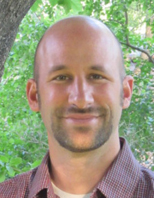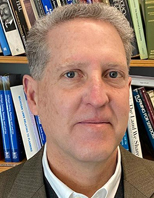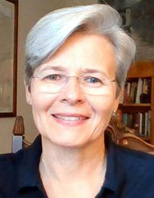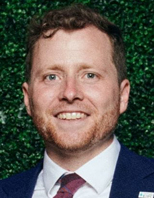Wednesday, April 26, 2023
12:00pm – 1:00pm
Christman/MML Building
208 N. Capitol Ave.,1st Floor
Lansing, MI 48933
Michigan is uniquely situated as climate change makes significant changes to our way of life, identified by international experts as a climate refuge. Michigan’s Great Lakes help serve as an insulator for many of the climate impacts that will face the rest of the nation. That doesn’t mean Michigan won’t still need to make significant adaptations to address climate change impacts, it means that the state will face a unique challenge of both adaptation and preparing for an influx of climate refugees from places around the country. Our presenters today will discuss where we are at in addressing climate impacts on the Great Lakes, and how we need to prepare our water systems and available resources for an influx of population.
Panel Speakers:
 Mike Shriberg
Mike Shriberg
Visiting Professor of Practice and Engagement; Interim Director, Michigan Sea Grant
Mike Shriberg’s work focuses on water issues in the Great Lakes, local and state energy policy, campus sustainability/carbon neutrality and environmental leadership. Prior to coming to SEAS, he was the Great Lakes regional executive director at the National Wildlife Federation. Major initiatives included leading federal Great Lakes restoration efforts; building resilience of the Great Lakes from climate change; combating environmental injustice in the region; and engaging urban youth in nature-based education and activities.
 Richard Norton
Richard Norton
Professor of Urban & Regional Planning
Professor of Program in the Environment
Richard K. Norton is a professor of urban and regional planning at the University of Michigan’s Taubman College of Architecture and Urban Planning. He also holds a joint appointment as a professor in the Program in the Environment through U-M’s College of Literature, Science, and the Arts and School for Environment and Sustainability. Norton teaches and conducts research in the areas of planning law, sustainable development, land use and environmental planning, and coastal area management. Most of his research has focused on the challenges of managing coastal shorelands along the Laurentian Great Lakes. He also contributes actively to public service through community-engaged research and teaching, and by serving on the planning law committee of the Michigan Association of Planning (MAP).
 Jennifer Read
Jennifer Read
Water Center Director
Office of the Provost, Graham Sustainability Institute
As Director of the Water Center, Jen provides intellectual and programmatic leadership to our mission to foster collaborative research that informs the policy and management decisions affecting our nation’s Great Lakes and coastal estuarine waters. She networks with regional partners from the public, private, and non-governmental sectors helping identify and elevate their water-related priorities. Then she works with faculty and students to develop multi-sector, multidisciplinary teams that address the cross-sector water resource priorities our partners have identified.
Jen has more than 20 years’ experience developing and implementing user-focused programs in the bi-national Great Lakes region. She has held positions at the Great Lakes Commission, the Great Lakes Institute for Environmental Research at the University of Windsor (GLIER), and as Assistant Director and Research Coordinator of Michigan Sea Grant.
 Cory Connolly
Cory Connolly
Climate and energy advisor
Office of Climate and Energy (OCE)
Cory Connolly is climate and energy advisor, leading the Office of Climate and Energy (OCE) within the Michigan Department of Environment, Great Lakes, and Energy (EGLE). The office coordinates Michigan’s response to climate change across state departments and agencies and provides guidance on climate change mitigation, adaptation, and resiliency strategies.
As advisor, Cory is key in formulating and overseeing implementation of Gov. Gretchen Whitmer’s MI Healthy Climate plan, a road map to achieving economy-wide carbon neutrality by 2050.
Cory previously served as vice president for the Institute for Energy Innovation and the Michigan Energy Innovation Business Council. He also founded the Michigan Clean Energy Leaders Project, was chief operating officer at Levin Energy Partners/Lean & Green Michigan, and worked as a senior research associate at the Environmental Law Institute.
A native of the northern Michigan town of Northport, Cory now lives in Detroit, where he enjoys playing basketball and tries to travel to Latin America as often as possible.

